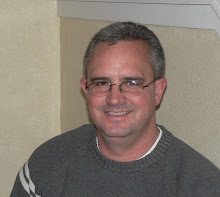What's your goal for today? Say it to yourself. Ready? One, two, three, go!
Now, if you had a goal for yourself today, that would have been easy. If you didn't, you probably sat there stammering like an idiot. And that's not a good thing! Unless you're Lee, in which case your goal is to stammer like an idiot.
Mr. Toastmaster, fellow toastmasters and guests.
Today, I am going to tell you the secret to not just having goals but to actually achieve them. If you start applying what I introduce to you today, you can start seeing changes in your life immediately.
In order to be able to set a goal, you have to have a vision. You have to know where you're going.
An expedition was underway in a dense forest. The manager of the expedition had everything in place. He had crews set up to blaze a trail, keep the machetes sharpened, allow time to eat and rest, and then rotated the crews through each phase. They were blazing away! And they kept blazing away hour after hour, day after day. They were making phenomenal progress. Finally, the manager stopped the expedition and had one of his people climb to the top of the tallest tree to see where they were. As he got to the top of the tree and surveyed the massive canopy in front of him, he called back down to the manager, "Wrong forest!!!"
If you're in the wrong forest you'll just keep spinning your wheels. You may achieve some goals, but they won't be doing anything for you. You have to know where you're going.
Once you have that vision, now you can set goals to get you there. But you can't just make a statement and call it a goal. How many of you have ever set a weight loss goal? Did it sound something like this, "I'm going to lose 20 pounds?" And how did you do? Still have the same goal, don't you?
You have to set SMART goals. Specific-Measurable-Attainable-Relevant-Time Bound
They have to be specific. "I need to lose weight," is vague and general. "I need to lose 20 pounds," is specific.
They need to be measurable. I can get on a scale and measure my weight loss.
The goal must be attainable. This one can be tricky. You need to make sure it's something you can accomplish, but not so easy as to offer you no challenge. In either case, you'll have no motivation to actually attempt to reach the goal.
Is the goal relevant? Does it help you achieve your vision?
And it needs to be time-bound. When will you accomplish this goal?
Being SMART, let's rewrite that weight loss goal. "I will lose 20 pounds in the next 3 months." Specific, measurable, attainable (2 lbs/week, 12 weeks), it's relevant to my vision, and it's time-bound, I have 3 months.
Once you have that SMART goal, write it down. I did. That weight loss goal was exactly what my goal was not too long ago. And I wrote it down. I put it on the bathroom mirror. I put it on the dashboard of my car. I even put it on my computer monitor so that I was reminded of my goal all day long. And do you know what the result was after those 3 months? I gained 3 pounds.
You see, I missed the most important part of setting goals. And this is the key to being able to achieve all of your goals. You have to set a goal for yourself everyday that focuses on the behavior you need to change in order to realize your goal.
Those SMART goals we set for ourselves are outcome based. While they are important, I contend that they tell us nothing about how to achieve them. I think most of us are probably pretty good at setting outcome based goals. We set SMART goals and we think that's enough. I'm sorry, but that's only the beginning.
If you really want to achieve your goals, you need to focus on your behaviors every day! Who's in sales? Do you have sales goals? Do those goals tell you anything about how to be a better salesperson in order to achieve those targets?
Focus on behaviors that will make you a better salesperson every day. "My goal today is to call 5 new leads." "My goal today is to make follow-up calls to these 3 customers." "My goal today is to send a Thank You note to my last 10 customers."
We heard a speech a couple of weeks ago called "One Foot in Front of Another." In that speech, Laura encouraged us to get off of the couch and start running. The part of that speech that stuck with me the most is when she told us not to think about how many miles we're running, just get out and run for a certain amount of time. What's the difference between running 3 miles and running for 30 minutes? Three miles focuses on an outcome. 30-minutes focuses on a behavior.
My vision is to be a great public speaker. My goal is to achieve my Competent Communicator award by the end of the year. But, most importantly, my goal today was to rehearse my speech 2 more times this morning, out loud. And to come to this meeting today and deliver the best speech I possibly could. That's what my goal today was.
What's your goal for today? Ready? 1, 2, 3 Go!


No comments:
Post a Comment